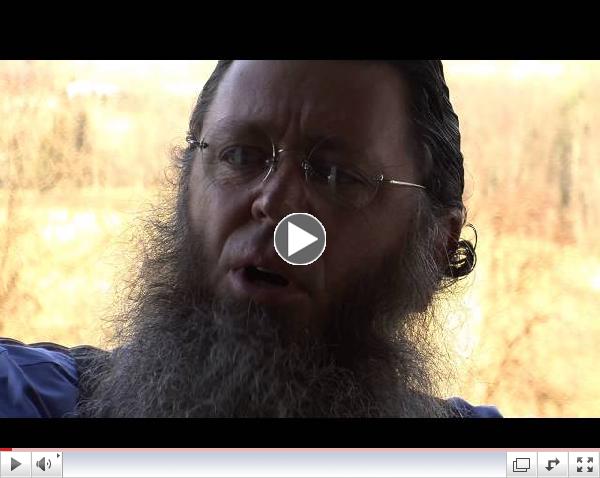|
Former York County Representative Eugene DePasquale became the Commonwealth's 51st Auditor General in a ceremony on Tuesday, Jan 15th in the State Museum of Pennsylvania. In his swearing-in speech, AG DePasquale had this to say about the impacts of shale drilling on the state of Pennsylvania:
"Right now, we often hear about job growth in areas of Pennsylvania where drilling in the Marcellus Shale formation is taking place. That is certainly understandable. Growing up in Pittsburgh, the lesson was clear when the steel mills closed down, that no industry can be certain to last forever. This is why we must ensure we have a workforce that is diverse and prepared to face an economy that will be forever changing. At the same time, we need to focus just as much attention on the environmental impact of drilling. When the steel mills closed, it took an enormous effort, in some cases it took decades, to clean up a site to allow its reuse. While natural gas drilling has brought new opportunities to small towns and rural communities throughout the state, that same drilling poses challenges to our environmental regulators, our local communities and our natural resources. At the same time, we cannot forget mistakes made in the past.
Our Pennsylvania waterways are still suffering - despite billions of dollars in clean-up - from inadequate oversight of the coal industry in previous generations. And, you don't have to be that old to remember the cost of doing nothing when our steelplants needed additional investments to become cleaner and more competitive. In an effort
to save jobs while ignoring the environment, doing nothing ended up costing us jobs and creating an environmental problem that required expensive solutions. Today it is clear, we must strive to grow our economy and protect our environment at thesame time. That is why, one of my first official duties as Auditor General will be to initiate a performance audit of the Department of Environmental Protection to make sure our constitutional right to pure water is not being compromised by natural gas drilling." |
|
RDA In the News
State Headlines
National Headlines
World Headlines
|
|
Videos Worth Watching
"Unpredictable and
Always at Risk":
Dave Bohlander's Story
 | |
Video by urbandisasterrecords
|
"From the Frontlines" welcomes David Bohlander, Accountant and Business Consultant. Dave's home has been occupied by the gas industry known as "hydrofracking".
Living in Wyalusing PA, in the heart of fracking in Bradford County, the water wells on his wife's 7th generation family farm were contaminated after the Slick Water Hydraulic Fracturing began.
Water Contamination:
Farmer Carol French
 | |
Video by urbandisasterrecords
|
This edition of "From the Frontlines" features Bradford County PA Dairy Farmer Carol French. Carol has dealt first hand with the gas industry. Her story begins in 2006, when the landman came knocking on her door.
Now, it's 2013 and Carols farm has contaminated water. Her life begins and ends with water. This is Carol French, activist and hero, fighting for our country's clean water, whatever the cost.
|
|
|
|
|
The Myth of Energy Independence
 | |
Image: www.acus.org |
by Ralph Kisberg and Pam Solo
The definition of "energy independence" is evolving. Up to recently, it meant U.S. Oil production would eliminate our domestically to longerbe dependance on other nations for any of domestic energy needs. But now, we're in a world of interdependence, especially for oil. Oil markets have no national allegiance. Globalization and profit motive are altering a once patriotic concept to mean: Producing enough oil and gas so we can export more to our trading partners than we import. While this new energy independence framework may help some companies' profits, it stands to hurt many Americans' pocketbooks, water supply, and perhaps health.
The recent advent of the ability to extract gas from shale formations, -hhigh pressure, high volume, slick water hydraulic fracturing , in combination with horizontal drilling -, has caused the domestic price of natural gas to be so low, that producers are looking to foreign markets - particularly Europe, Japan, and other points east - to boost profit margins. Companies are rushing to use this new definition of energy independence to justify exploitation of shale resource reserves in the US. Before we embrace this notion, perhaps we need to examine more closely its potential to cause rising energy costs for both consumers and manufacturers in our American economy.
What does the pursuit of this new definition of energy independence mean for everyday Americans?
It means continued use of billions of barrels of oil and trillions of cubic feet of natural gas and the water resources necessary to extract them. It means potentially devastating impacts on local economies and resources from wellfield development in the form of more air and water pollution, plus possibly multiplying public health and infrastructure costs. It may also mean priming the pump of climate change more than we've already managed to do, which is apparent in our weather patterns of late.
The train wreck emerging in this business-as-usual approach is the tradeoff between energy, agriculture, manufacturing, and human need of our scarce water resources. We must carefully balance the demand for our nation's limited water supplies to ensure all our needs are met. Our current energy system, from all sources, not just NG, is extremely water intensive and wasteful, pulling water away from competing interests.
Rather than merrily proceeding down this road and assuming industry will look out for us, perhaps we should pursue policies that address the energy challenges before us in a financially sound, effective manner. The American Clean Energy Agenda (ACEA), proposed by over 100 organizations with a total of two million members, provides such a framework.
The ACEA envisions an electric generation mix comprised of technologies that:
- Are affordable and have the greatest potential to come down in cost
- Use and consume the least amount of water
- Generate the least pollution
- Effectively reduce greenhouse gas emissions
- Maintain grid reliability.
 | |
Image: www.cityofpalmdesert.org |
Applying these criteria will result in a diversified and decentralized electric grid that is much more efficient, clean, and affordable than our current system. Decentralization, such as rooftop solar panels, moves us toward achieving our other priority: energy system resilience. We can move toward a much healthier population with homegrown industries supplying our own needs and the world's s if we prioritize and incentivize carbon-free renewables, storage, and energy-efficient technologies.
Most importantly, we would drastically reduce or eliminate the tradeoffs between competing interests for scarce water resources; the United States would become a world leader in meeting the challenge of climate change. To many of us, this is a goal and policy of utmost national importance.
Calls for energy independence appeal to Americans' deeply held values of freedom and security. It is time for a forthright public discussion about what energy independence means and how to enact an energy policy that will free us from foreign entanglements and safeguard our health, water, and environment.
These criteria take into account not only up-front costs, but also the hidden costs of electric generation technology such as the public health costs of fossil fuels and disaster relief costs of climate change. These hidden costs can be severe, and if ignored, can exact significant damage to our economy and well being over time. |
Join RDA
As a 501(c)(3) non-profit organization, RDA relies exclusively on donations for the important work we do. In order for RDA to continue its valuable education and advocacy outreach in 2013, please consider a tax-free contribution to our efforts. We also welcome your active participation, and are in need of help for special events, publicity, internet research, and other projects.

Donations may also be sent by mail to:
Responsible Drilling Alliance PO Box 502 Thank you for your support! |
|
|
|
|